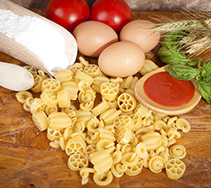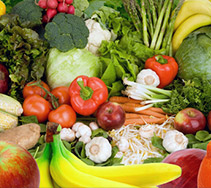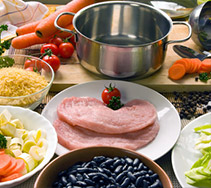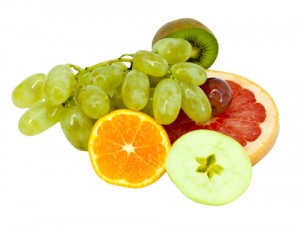
Simply put, the micronutrients are required in relatively small amounts and are defined as vitamins and minerals. Vitamins and minerals are derived from animal or plant foods and are essential to human life.
Vitamins are organic substances categorized into two groups, fat-soluble and water-soluble.
Vitamins A, D, E, and K are fat soluble vitamins. These vitamins are absorbed in the body and stored in fat. The B vitamins and vitamin c are water-soluble and cannot be stored in fat, thus requiring adequate daily consumption for maintenance of good health.
 All vitamins are important for normal growth, development, and maintenance of a healthy body. Taking in too little or having an excessive amount can have detrimental effects. Fruits and vegetables are excellent sources of most vitamins and minerals, fiber, antioxidants, and phytonutrients. Eating adequate amounts of fruits and vegetables can help to prevent chronic diseases such as heart disease, diabetes, and some cancers.
All vitamins are important for normal growth, development, and maintenance of a healthy body. Taking in too little or having an excessive amount can have detrimental effects. Fruits and vegetables are excellent sources of most vitamins and minerals, fiber, antioxidants, and phytonutrients. Eating adequate amounts of fruits and vegetables can help to prevent chronic diseases such as heart disease, diabetes, and some cancers.
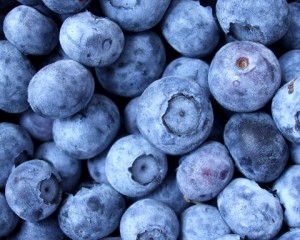 Minerals are inorganic substances that are neither animal nor plant based. All minerals originate in soil and water. Minerals play important roles in nearly every process of the human body. Minerals help to transport oxygen throughout the body, regulate heart beat, maintain fluid and chemical balances, and produce enzyme activity.
Minerals are inorganic substances that are neither animal nor plant based. All minerals originate in soil and water. Minerals play important roles in nearly every process of the human body. Minerals help to transport oxygen throughout the body, regulate heart beat, maintain fluid and chemical balances, and produce enzyme activity.
It has been recommended that men should consume 2 cups of fruit and 3 cups of vegetables a day. Women should consume 2 cups of fruit and 2 ½ cups of vegetables a day. Fruit and vegetable intake should come from a variety of sources. Always think of the color of a rainbow when choosing fruits and vegetables. Try to consume all colors because different colors carry different amounts of vitamins and minerals.
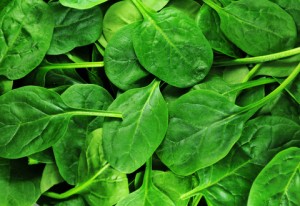 Quick Guide to Fat-Soluble Vitamins:
Quick Guide to Fat-Soluble Vitamins:
Vitamin A
- Green and deep yellow or orange vegetables
- Deep yellow or orange fruits
Vitamin D
- Fortified skim milk
- Salmon/tuna
- Eggs
- Exposure to sun
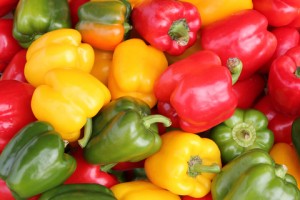 Vitamin E
Vitamin E
- Cereal: Raisin Bran, Corn Flakes
- Almonds
- Sunflower seeds
- Spinach
- Red bell pepper
Vitamin K
- Kale
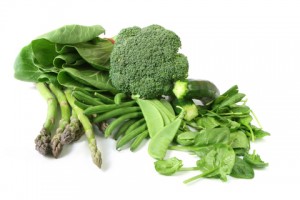 Spinach
Spinach- Broccoli
- Brussel Sprouts
- Okra
- Kiwifruit
- Blueberries
Quick Guide to Water-Soluble Vitamins:
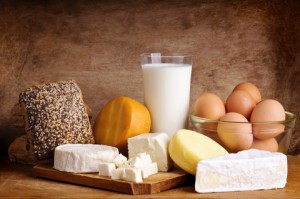 Thiamine (vitamin B1)
Thiamine (vitamin B1)
- Fortified whole grain cereals
- Pork
- Seafoods
Riboflavin (vitamin B2)
- Fortified grains and cereals
- Dark leafy green vegetables
 Niacin (vitamin B3)
Niacin (vitamin B3)
- Poultry
- Seafood
- Nuts/seeds
Cobalamin (vitamin B12)
- Meats/poultry/seafood
- Eggs
- Low-fat dairy products
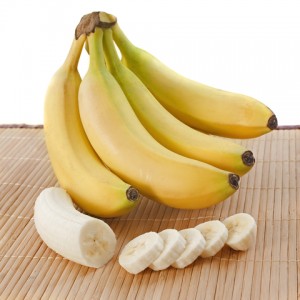 Pantothenic Acid (vitamin B6)
Pantothenic Acid (vitamin B6)
- Meats/poultry/fish
- Grains
- Spinach
- Bananas
- Prunes
- Watermelon
Vitamin C
- Citrus fruits
- Strawberries
- Green or Red peppers
- Cantaloupe
- Broccoli
- Cauliflower
- Sweet potatoes
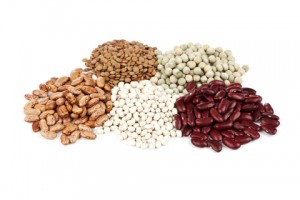 Folic Acid
Folic Acid
- Poultry
- Dark green leafy vegetable
- Legumes
- Fortified grains and cereals
